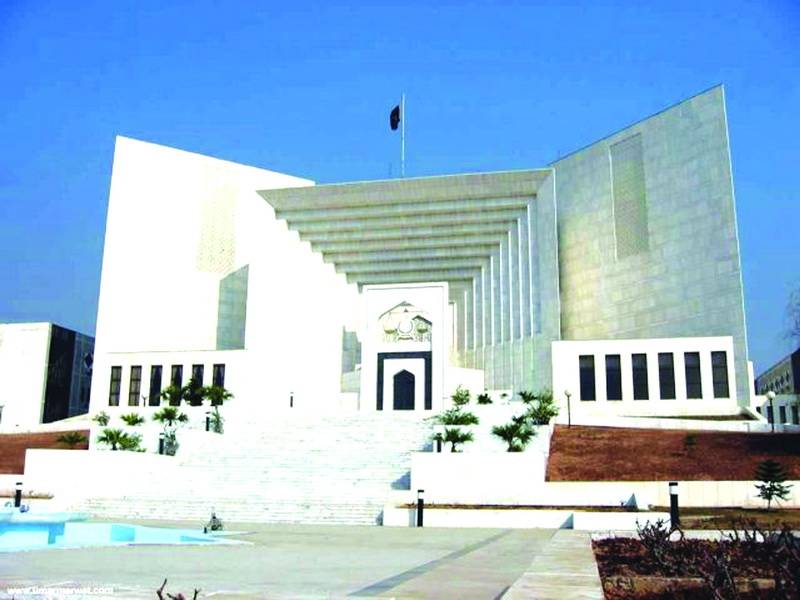
On Friday, the Supreme Court of Pakistan granted bail to a blasphemy accused who allegedly joined a WhatsApp group that posted blasphemous content, according to the complaint.
A two-member bench of the SC, headed by Justice Qazi Faez Isa, heard the bail application of the accused. During the hearing, Justice Isa inquired from the public prosecutor why had the trial court not imposed any clause in the indictment.
Justice Isa further remarked that the FIA had sought the opinion of the Council of Islamic Ideology (CII) in this case, and that the council said that section 295-C of the Pakistan Penal Code (PPC) does not apply to the accused. The Supreme Court's senior puisne judge added that the CII is a constitutional body, and when the opinion of a constitutional body is not followed then it is better to “close it”.
Justice Yahya Afridi asked the lawyer of the accused regarding the date the CII opinion was received, to which the council replied that the opinion came on 8 June 2022. Justice Afridi then inquired if the trial court had rejected the bail despite the opinion of the council. He further stated that at this stage, the SC cannot give its opinion. “If we give an opinion, the case under hearing in the high court will be affected,” Justice Afridi remarked.
“Matters related to religion cannot be left in the hands of individuals but the state machinery should handle them with utmost capacity and caution,” he furthered. Justice Isa added that state machinery should not lie before individuals in these matters, and that in a case related to religion, the trial court framed the charge but did not insert the section.
Expressing dissatisfaction over the FIA inquiry in the case, the Supreme Court observed that further investigation was required. The apex court bench remarked that the investigation was incomplete, because the alleged post is in Arabic but the investigation doesn’t prove whether the complainant even knows Arabic or not.
A two-member bench of the SC, headed by Justice Qazi Faez Isa, heard the bail application of the accused. During the hearing, Justice Isa inquired from the public prosecutor why had the trial court not imposed any clause in the indictment.
Justice Isa asked how will the accused fight his case when he does not know what crime he has committed.
Justice Isa further remarked that the FIA had sought the opinion of the Council of Islamic Ideology (CII) in this case, and that the council said that section 295-C of the Pakistan Penal Code (PPC) does not apply to the accused. The Supreme Court's senior puisne judge added that the CII is a constitutional body, and when the opinion of a constitutional body is not followed then it is better to “close it”.
Justice Yahya Afridi asked the lawyer of the accused regarding the date the CII opinion was received, to which the council replied that the opinion came on 8 June 2022. Justice Afridi then inquired if the trial court had rejected the bail despite the opinion of the council. He further stated that at this stage, the SC cannot give its opinion. “If we give an opinion, the case under hearing in the high court will be affected,” Justice Afridi remarked.
While giving remarks during the hearing, Justice Isa said that every case about religion is related to the state.
“Matters related to religion cannot be left in the hands of individuals but the state machinery should handle them with utmost capacity and caution,” he furthered. Justice Isa added that state machinery should not lie before individuals in these matters, and that in a case related to religion, the trial court framed the charge but did not insert the section.
Expressing dissatisfaction over the FIA inquiry in the case, the Supreme Court observed that further investigation was required. The apex court bench remarked that the investigation was incomplete, because the alleged post is in Arabic but the investigation doesn’t prove whether the complainant even knows Arabic or not.

